In this article:
Your scalp is naturally populated by various strains of bacteria and other microbes that live in symbiosis with each other without causing any harm to the human body. However, a range of factors can trigger the overgrowth of any of these microbes and disrupt the healthy equilibrium of the scalp microbiome.
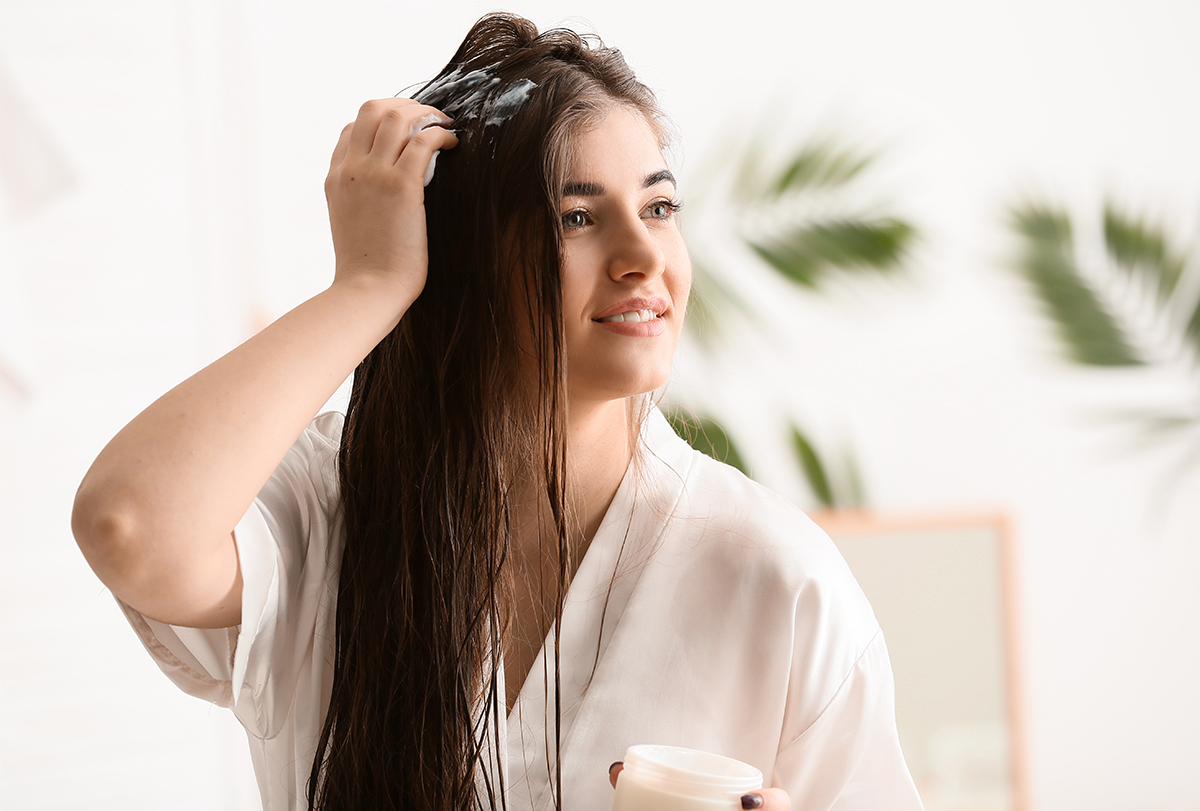
When provided with favorable conditions, these microbes proliferate rapidly to colonize your scalp skin and infiltrate your hair follicles. (1) They decompose the sebum and other organic debris such as the skin flakes on your scalp to produce compounds that give off a foul smell. (2)
Poor scalp or hair hygiene is one of the predominant factors responsible for a smelly scalp. Your hair and scalp are exposed daily to environmental pollutants that stick to their surface and accumulate over time. Plus, the scalp sheds dead skin cells and releases natural oils that further add to the buildup. The shampoo, conditioner, and other hair products that you use can also leave behind residue if you don’t rinse them out properly.
Also, an unhealthy scalp disrupts the growth of hair and promotes infections. (3) The infection-causing bacteria breaks down the scalp buildup, producing malodorous compounds that make your scalp stink more intensely.
Although it can be quite embarrassing, a smelly scalp is not something to dread as it can be easily managed with various treatments. You can try over-the-counter medicated shampoos or ointments, or consult an expert about it to get appropriate product recommendations and medications if needed.
You can also try some home remedies, mostly in the form of hair and scalp masks, to address mild cases of a smelly scalp and buildup. This article brings you a variety of popular hair and scalp masks that can help treat a smelly scalp.
Caution: The following masks are meant for mild cases of a smelly scalp caused by common reasons such as negligent hair washing and dandruff and should only be used once or twice a week. If the problem is persistent or recurrent, you must seek medical evaluation for a complete diagnosis. Do not attempt to treat a serious condition by yourself.
DIY Hair Masks for a Smelly Scalp
A number of products can help clear out scalp buildup and eliminate the foul smell associated with it. These include over-the-counter medicated shampoos and serums as well as some cosmeceutical hair sprays or mists.
But some natural ingredients can also help deep-cleanse your scalp and subdue the foul smell when used in a hair mask. Such DIY masks have been traditionally used for a wide range of hair or scalp problems. (4)
In Ayurveda, they are called the shiru lepas and are believed to eliminate foul odor from the scalp and aid in managing common scalp conditions such as dandruff. The ingredients used in these masks have also been studied for their properties that make them suitable for such usage.
It is important to remember though that no clinical trials have put these masks to test, and, thus, they may not carry significant scientific backing. However, they have delivered good results to many general users.
Caution: As long as you are not allergic to any of the ingredients used in the masks, they are completely safe to try. To be sure that you are not allergic, perform a patch test of a small amount of the mask on the underside of your arm. If you experience any irritation or adverse symptoms, skip the mask and try another.
Note: Some of these masks contain essential oils. A specific essential oil may be mentioned in the recipes, but you can add any essential oil of your choosing. Some commonly used essential oils are lavender, carrot seed, rosemary, (5) chamomile, rosewood, palmarosa, lemongrass, (6) patchouli, sage, cypress, cedarwood, lemon, cinnamon, (7) geranium, spearmint, tea tree, (8) and juniper. These oils are only used in minute amounts, so people with oily scalp can try them. Lemongrass, sage, and patchouli are best suited for oily skin.
1. Yogurt and rice water mask
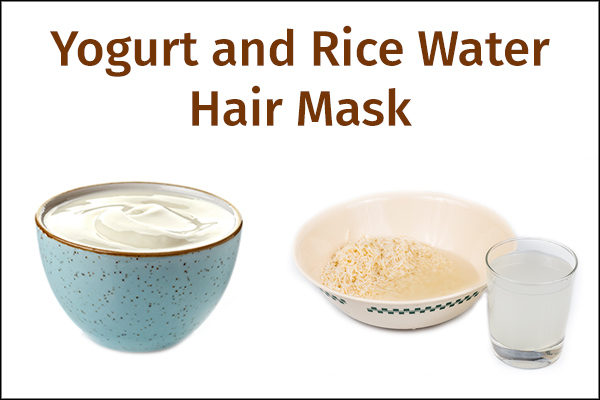
Yogurt is loaded with lactic acid, which is an alpha hydroxy acid that works as an excellent peeling agent. (9) It is on account of this acid that topical application of yogurt can gently exfoliate the buildup on your scalp.
Plus, yogurt masks can also help fight and prevent scalp infections by curbing microbial overgrowth. (10)
How to make the mask:
- Add about 2 tablespoons of yogurt and 2 tablespoons of rice water to a bowl.
- Combine the ingredients well to make a smooth paste.
2. Neem and coconut oil mask
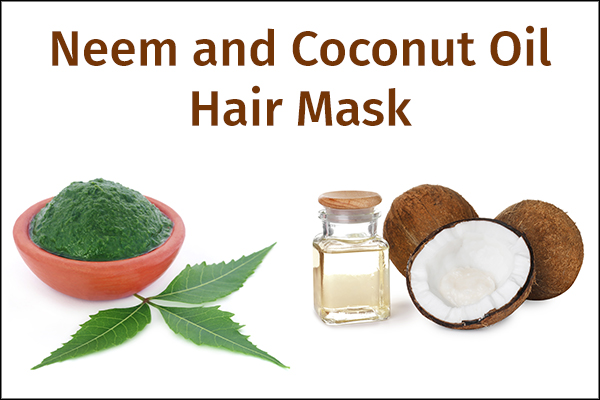
Neem contains polyphenolic flavonoids such as quercetin and beta-sitosterol, which inhibit the growth of numerous microbes to prevent scalp infections. (11)
How to make the mask:
- Grind 10–20 fresh neem leaves.
- Add coconut oil to form a thick paste.
Note: This mask is not recommended for people with excessively oily scalp.
3. Flaxseed and yogurt hair mask
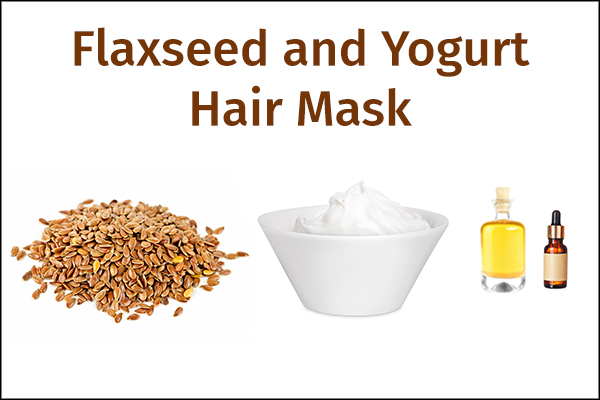
Flaxseed exhibits antibacterial properties that can help disinfect your scalp. (12) Plus, it is enriched with omega-3 oil along with vitamins E and B, (13) all of which can nourish and heal your inflamed scalp.
How to make the mask:
- Put 1 tbsp of flaxseeds in a bowl and pour boiling water over them until they are completely covered.
- Continuously stir the mixture until it acquires a gel-like consistency.
- Strain the gel in a bowl and add 1 spoon of cornstarch to it. You can also add yogurt instead of cornstarch.
- Mix all the ingredients until they are completely blended.
- Add 5 drops of jasmine or patchouli essential oil and 5 drops of jojoba oil to the flaxseed gel. Mix well to form the final paste.
4. Avocado, banana, and honey mask
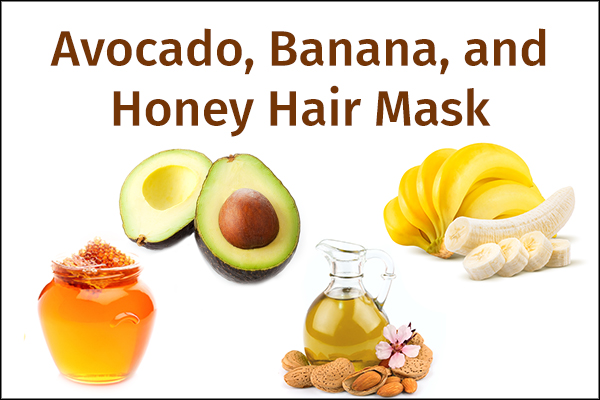
Avocado contains several bioactive compounds such as flavonoids, anthocyanidins, tocopherols, fatty acids, vitamins, and minerals (14) that exhibit different therapeutic properties that can nourish, protect, and repair your scalp.
How to make the mask:
- Scoop out the flesh of half an avocado.
- Add half a banana and mash the fruits to make a paste.
- Pour in 1 tablespoon of honey.
- Add 1 tablespoon of sweet almond oil, grapeseed oil, or jojoba oil (or any fragrant essential oil that you like).
- You can sprinkle some cinnamon powder as well.
- Mix all the ingredients to make a smooth paste.
5. Honey and banana hair mask
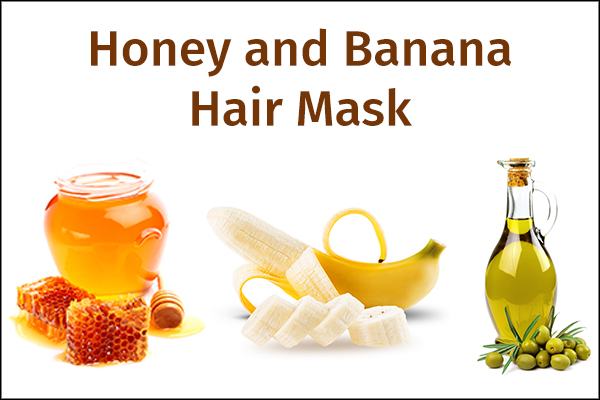
Honey is renowned for its healing properties that have proven useful in treating a whole variety of ailments, (15)(16) and it may be a great addition to your hair masks as well.
Its high sugar concentration allows it to hydrate, condition, and soften your hair. Plus, it is credited with antimicrobial properties, which can be traced back to its content of hydrogen peroxide, polyphenols, flavonoids, and bee peptides. Thus, honey can moisturize and sanitize your scalp.
Honey is also a powerful antioxidant, which means it can protect your hair and scalp from free radical-induced oxidative damage.
How to make the mask:
- Squash a peeled banana in a bowl.
- Pour in some honey and olive oil.
- Mix all the ingredients to make a thick, lump-free paste.
Alternative:
- If you are out of bananas, take 2 tablespoons of cocoa powder in a bowl.
- Mix in some cocoa butter/coconut oil and honey to make a thick paste.
How to Properly Use a Hair Mask or Rinse
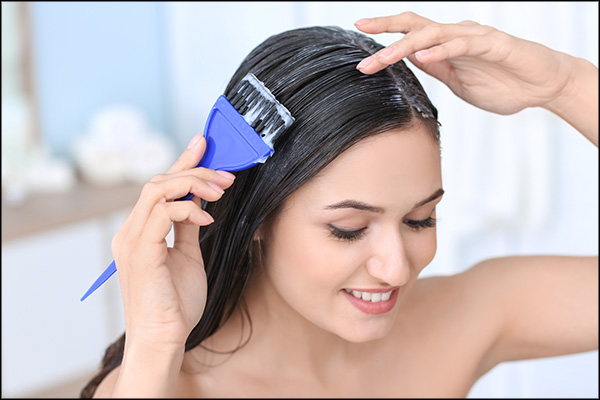
How to use a hair mask:
- Apply the hair mask to your scalp. The focus should be on the scalp and not your hair.
- Let the mask sit for about 20–30 minutes
- Rinse out the mask with tepid water.
- Wash your scalp and hair with a mild shampoo.
- You can also use a conditioner after, but only apply it to your hair tips up to the midlength of your tresses but not to your scalp as it can form a thick residual layer.
How to use a hair rinse:
- Wash your hair with a suitable shampoo.
- Follow it up with a conditioner.
- Once you have washed off the conditioner, pour the hair rinse over your scalp and hair. Make sure to keep a bowl underneath your hair to collect the liquid that trickles down so that you can reapply it.
- Do this a few times, and then wait for a minute so that liquid is properly absorbed.
- Give your head a final rinse with cold water.
Store-Bought Hair Masks
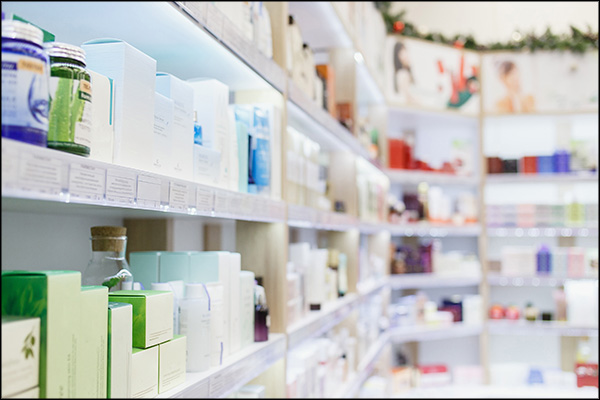
Hair masks made with easily available kitchen ingredients offer an inexpensive and chemical-free alternative to commercial hair care products, but people are not always convinced about their efficacy and safety or find them too messy.
For instance, some DIY hair masks use pungent ingredients such as garlic that can leave your hair and scalp smelling a bit unpleasant, but the stink will most likely wear off after a few hours.
If you have such apprehensions, you can try ready-made hair masks and gels that are readily available in grocery stores, drugstores, and beauty stores. These hair masks are also blends of different ingredients like the ones used in DIY hair masks but are simpler to use.
They often contain gentle, soothing clays that calm and cleanse your scalp and botanical oils that provide such much-needed hydration and a pleasant smell, along with other healing effects.
Here are a few formulations that are worth a try:
- Exfoliating masks that are made with micronized apricot and argan exfoliators
- Volcanic mud masks with oils such as vitamin E oils, mango seed butter, or wheat germ oil
- Nourishing masks containing amino acids, kukui nut oil, and grapefruit seeds extracts
- Red onion black seed oil hair and scalp mask
- Rose petal extracts hair mask with added oils such as sunflower oil
- Black spruce bark extract mask with vitamin B3 and B5
- Rosemary and mint hair masks
Final Word
Hair and scalp hygiene is an essential part of personal hygiene, but one that does not always get the attention it deserves. The dense cover of hair over your scalp allows impurities to be easily trapped and difficult to clean out.
Although anyone can get a smelly scalp as a result of negligent hair hygiene, some people are more prone to it due to various contributing factors such as excessive sweating, dandruff, living in a highly polluted area, and outdoor jobs that expose them to more pollutants.
There are plenty of things you can do to reduce scalp buildup, homemade hair masks being one of the most convenient options. However, these masks may not prove effective for severe cases that stem from an underlying problem. If the smelly scalp does not resolve despite proper hair care at home or keeps coming back, consult a doctor for a more targeted treatment approach.
- Was this article helpful?
- YES, THANKS!NOT REALLY


